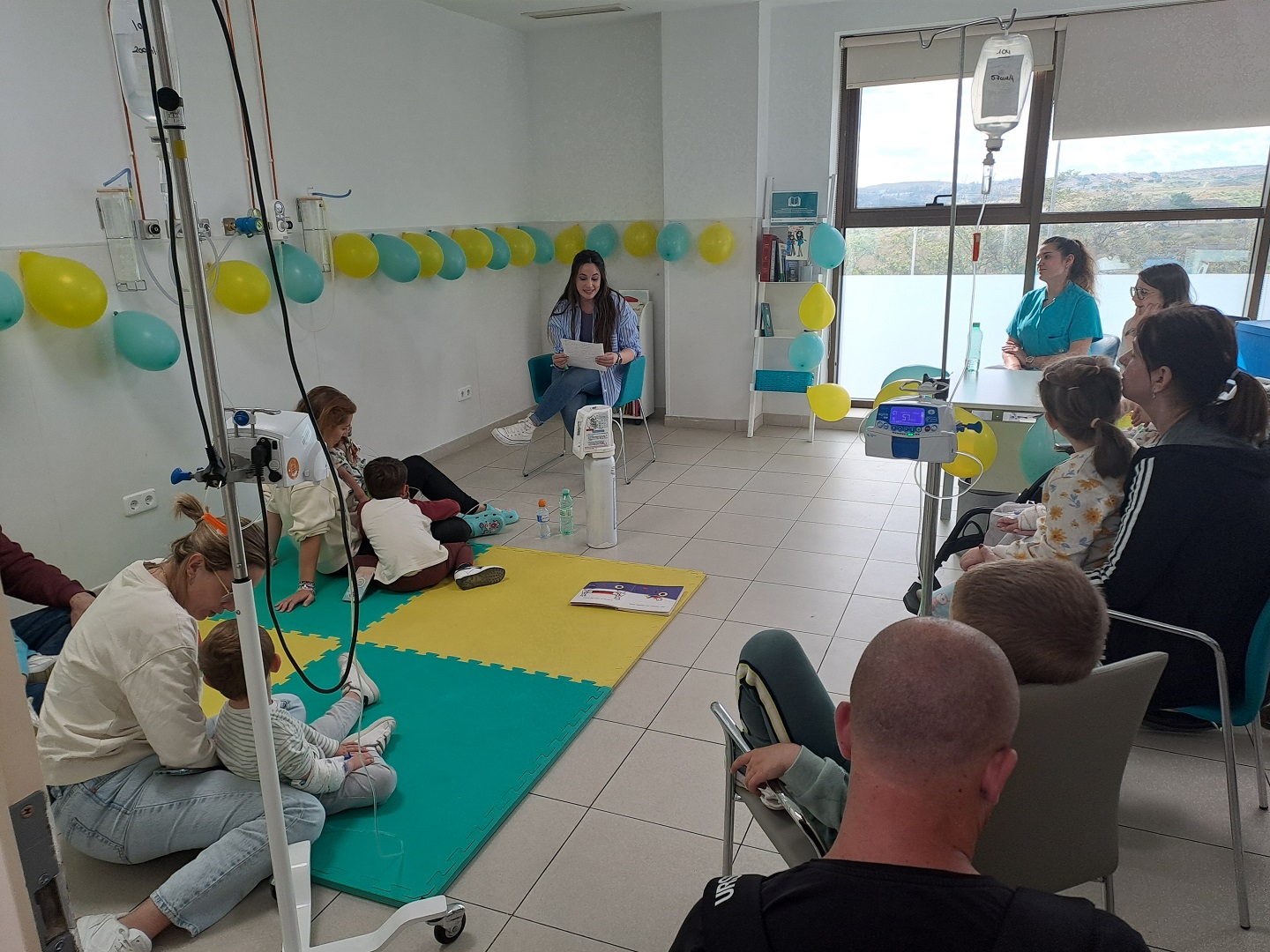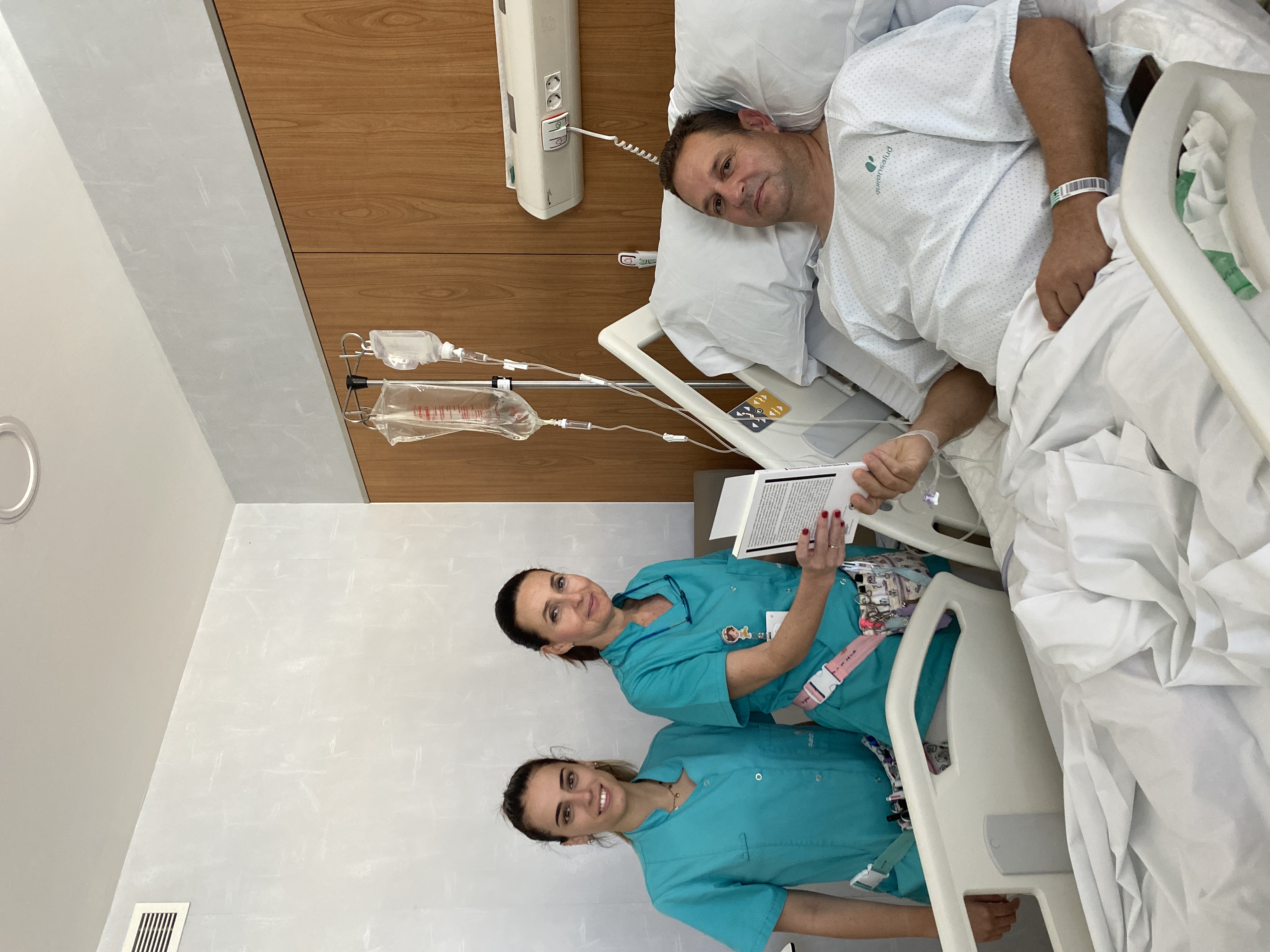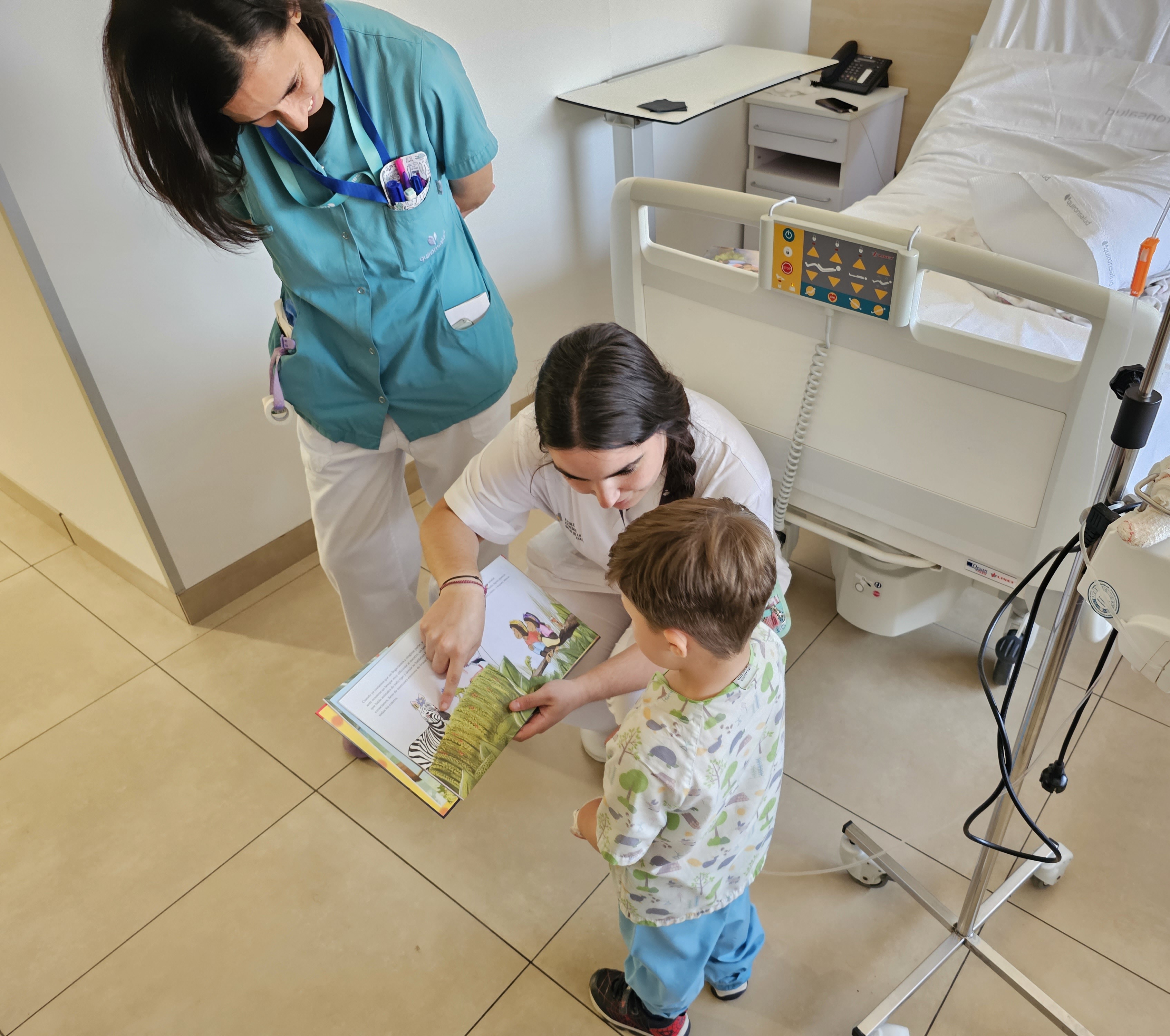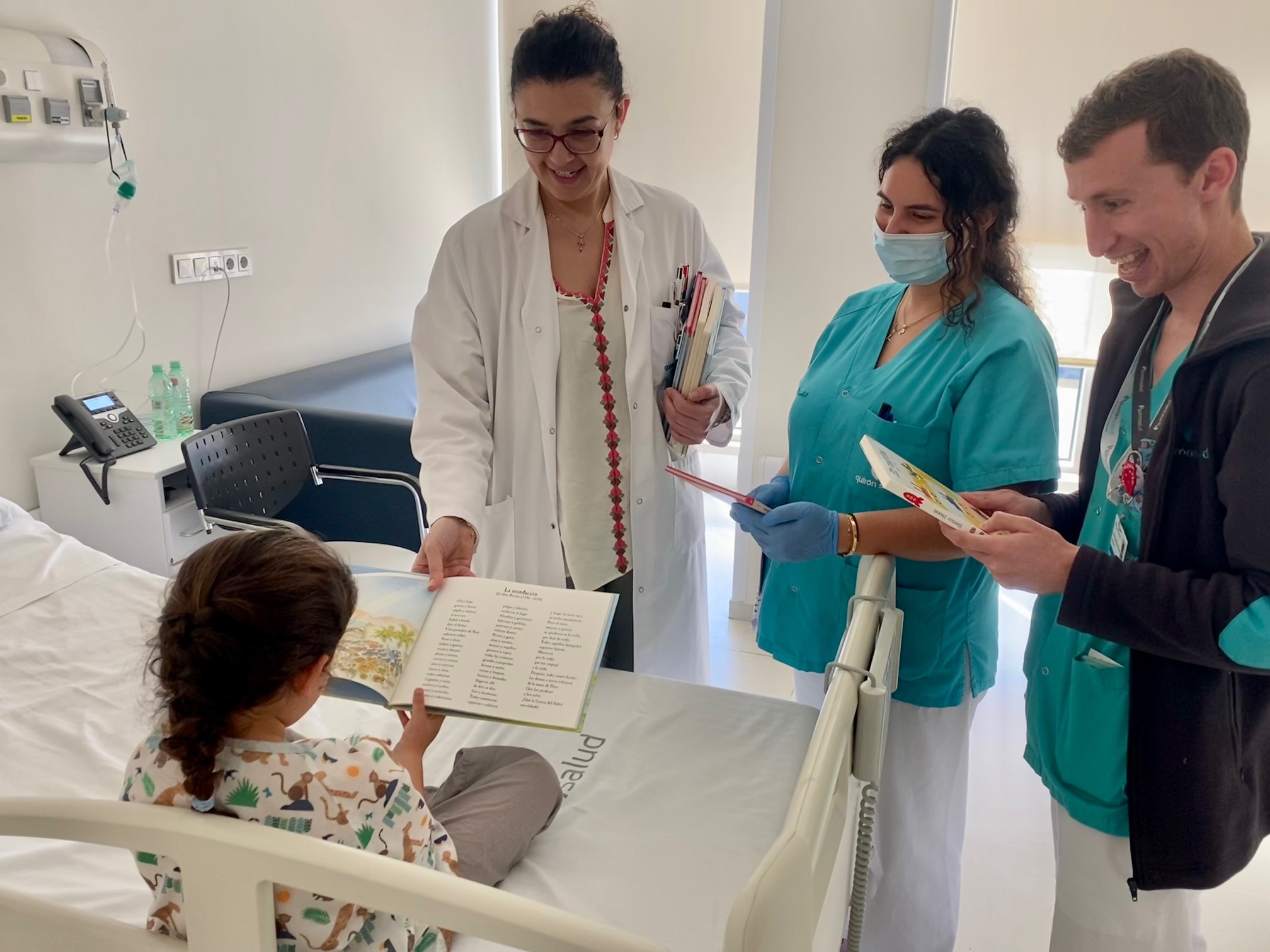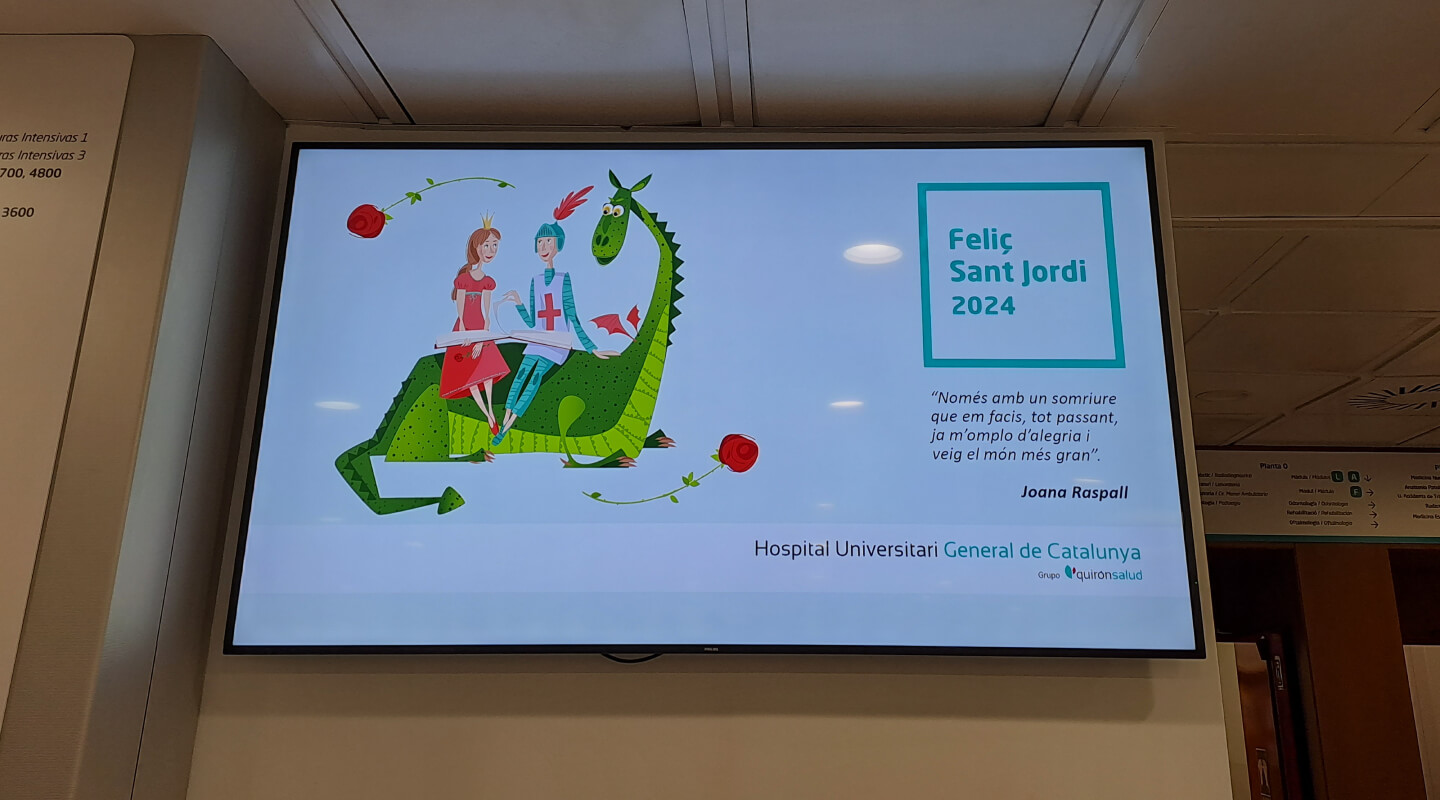Seven out of ten ovarian cancers are diagnosed in advanced stages
Seven out of ten ovarian cancers are diagnosed in their more advanced stages since they present very nonspecific symptoms that become confused with other pathologies, which causes that carcinomatosis is already present in most of the cases, as the specialists of Quirónsalud affirm. Torrevieja and Murcia with Reason for the World Day of this disease that is celebrated next Wednesday May 8.
In Spain, ovarian cancer is the fourth cause of cancer death in women and, although it is not extremely frequent, more than 3,200 new cases are diagnosed each year. The age group with the highest incidence is between 55 and 65 years old, and although it is not very frequent, it is usually very aggressive and insidious at the time of diagnosis because of the non-specificity of its symptoms, confusing it with abdominal discomfort similar to an indigestion. Among the most common symptoms is abdominal swelling due to fluid accumulation that may be accompanied by discomfort in the lower area, the appearance of bulges in the abdomen, changes in the intestinal rhythm and, in some cases, the appearance of vaginal hemorrhages between menstrual cycles or in menopausal women. In view of these symptoms, specialists recommend going to the doctor and performing the relevant tests.
According to Dr. Pedro Bretcha, specialist in surgical oncology at the Hospital Quirónsalud Torrevieja, "the use of technology is important, but what is required above all is a multidisciplinary view of cancer, with a specialized team, since the treatment of the The disease can not be left exclusively in the hands of a surgeon, an oncologist or a gynecologist, but must be carried out in a consensual manner and adapted to each patient. "
HIPEC increases the survival of patients with ovarian cancer
Surgery and, specifically, the use of HIPEC increases the survival of patients with ovarian cancer. This treatment is currently applied by specialists of Quirónsalud Torrevieja and Murcia in patients diagnosed with peritoneal carcinomatosis, a condition defined as the spread of a primary cancer, which may be digestive or gynecological, in the abdominal cavity, and which ends up affecting others. intra-abdominal organs. According to Dr. Pedro Cascales Oncological Surgeon of Hospital Quirónsalud Murcia, "It is precisely in these patients that, with a correct approach, results can be achieved before hardly imaginable, results very dependent on the surgical team that treats them."
In fact, the use of HIPEC increases the survival of patients with stage III epithelial ovarian cancer. In addition, its use does not add any complications to the surgical procedure. This is the conclusion reached by the authors of a clinical trial published in the prestigious scientific journal The New England Journal of Medicine. The treatment with HIPEC allows to combine a high dose intensity of chemotherapy, focused in the affected area, with a lower systemic toxicity due to the limitation in the passage of the drug from the peritoneal cavity to the systemic torrent due to the characteristics of the peritoneal membrane and of the own drug. Its use requires high training centers, with multidisciplinary teams and a high specialization in oncological surgery, as it is a very complex technique.
Current events
Current events
- 24 de abril de 2024
El Hospital Quirónsalud Toledo celebra el Día del Libro con la lectura de ‘Las aventuras de Kenko’
Evadir del ámbito hospitalario, hacer disfrutar con la lectura y fomentar los hábitos saludables, los objetivos de la iniciativa.Hospital Quirónsalud ToledoPediatría y sus Áreas Específicas - 24 de abril de 2024
El Centro Médico Quirónsalud Valdebebas ofrece la posibilidad de conocer la edad metabólica
· Durante los viernes 26 de abril y 10 de mayo en horario de 9.00 a 14.00 horas y los miércoles 8 y 22 de mayo en horario de 15.00 a 20.00 horas. · Las personas interesadas q...Centro Médico Quirónsalud ValdebebasEndocrinología y Nutrición - 23 de abril de 2024
Quirónsalud Infanta Luisa celebra el Día del Libro con sus pacientes hospitalizados para promover los...
Quirónsalud Infanta Luisa regala libros a sus pacientes hospitalizados buscando amenizar así su estancia hospitalariaHospital Quirónsalud Infanta LuisaLogopedia - 24 de abril de 2024
El Hospital Quirónsalud Badalona incorpora un nuevo servicio de Teledermatología para acelerar el diagnóstico...
El nuevo servicio agiliza la atención y respuesta médica, en 48 horas, posibilitando una actuación rápida sobre las lesiones que presenten indicios de malignidad.Hospital Quirónsalud BadalonaDermatología Médico-Quirúrgica y Venereología - 23 de abril de 2024
La Fundación Jiménez Díaz obtiene la acreditación de calidad más reconocida en estudios genéticos, la...
La acreditación, otorgada por la ENAC, refleja la calidad y buenas prácticas del Departamento de Genética del hospitalHospital Universitario Fundación Jiménez Díaz - 22 de abril de 2024
La Fundación Jiménez Díaz obtiene la certificación de calidad más avanzada en sus servicios de UCI Quirúrgica,...
La acreditación es una norma internacional de gestión de la calidad de los cuidados críticosHospital Universitario Fundación Jiménez Díaz - 23 de abril de 2024
Quirónsalud Málaga celebra el Día del Libro con sus pacientes
El personal de Enfermería ha repartido ejemplares cortesía de la Fundación Quirónsalud.Hospital Quirónsalud Málaga - 23 de abril de 2024
Celebramos Sant Jordi con Parada de libros y reparto de rosas
Hoy 23 de abril celebramos Sant Jordi en Quirónsalud Barcelona con el tradicional reparto de rosas y por primera vez con el estreno de una parada de libros tanto para trabaja...Hospital Quirónsalud Barcelona - 23 de abril de 2024
El Hospital Quirónsalud Campo de Gibraltar regala libros a sus pacientes por el Día Internacional del...
El centro de Palmones promueve la lectura entre sus pacientes hospitalizados para tratar de hacer más amena su estancia en el hopspitalHospital Quirónsalud Campo de Gibraltar - 23 de abril de 2024
Quirónsalud Huelva celebra el Día del Libro con sus pacientes hospitalizados
Con motivo del Día Internacional del Libro que se celebra hoy, el Hospital Quirónsalud Huelva ha querido celebrar esta fecha obsequiando a sus pacientes hospitalizados con un...Hospital Quirónsalud Huelva - 23 de abril de 2024
La cirugía con quimioterapia e hipertermia y el uso de dianas moleculares: lo último en oncología
Málaga acoge la II Jornada Nacional Multidisciplinar de Innovación en Cáncer con la participación de más de 100 especialistas en la materiaHospital Quirónsalud MálagaOncología Médica - 23 de abril de 2024
Lectura para celebrar el Día internacional del Libro en el Hospital Quirónsalud Marbella
El objetivo de esta iniciativa es atenuar el estrés de los pacientes y fomentar el hábito de la lectura.Hospital Quirónsalud Marbella - 24 de abril de 2024
El Hospital Universitari General de Catalunya celebra el Sant Jordi con sus pacientes
El 23 de abril, el día de la rosa y el libro, también se ha celebrado en el Hospital Universitari General de Catalunya. Los pacientes ingresados han recibido una rosa junto ...Hospital Universitari General de Catalunya - 23 de abril de 2024
El Hospital Quirónsalud Córdoba celebra el Día Internacional del Libro con actividades para promover...
Las pantallas del centro hospitalario muestran frases célebres de autores como Antonio Gala, Maimónides, Séneca, Averroes y Góngora, y a los pacientes que ingresan hoy se les...Hospital Quirónsalud CórdobaNeurología - 24 de abril de 2024
Sant Jordi en el Hospital Universitari Sagrat Cor
Un año más, el Hospital Universitari Sagrat Cor, ha vivido el Sant Jordi de una manera muy especial, con distintas acciones pensadas para celebrar el día de la rosa y el lib...Hospital Universitari Sagrat Cor



